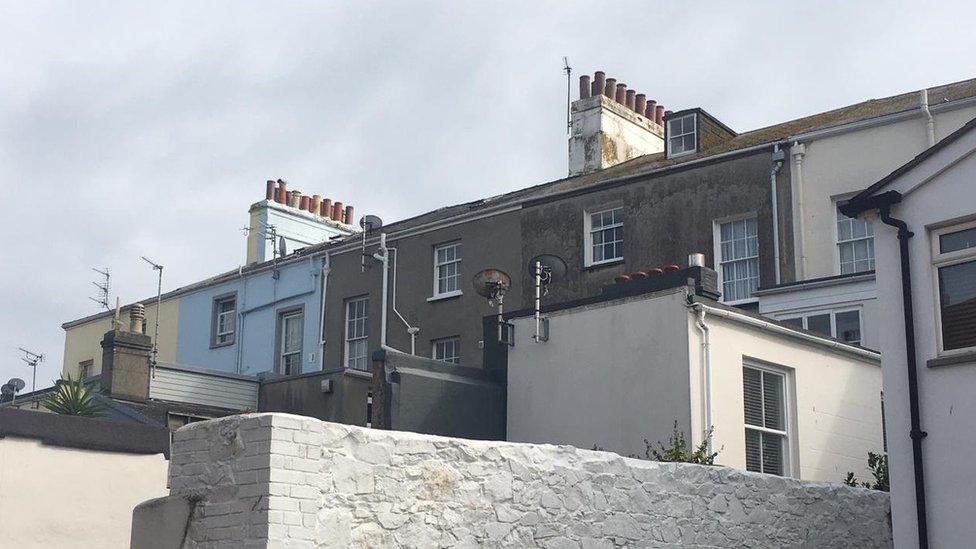Cost of Jersey living not set to decrease
- Published
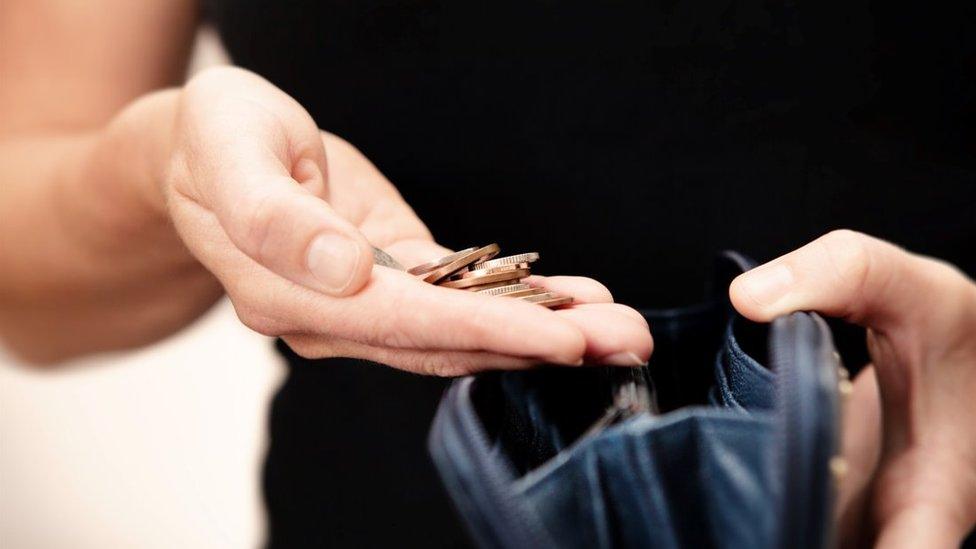
Islanders are facing rising prices in various areas with none set to decrease
The price of living in Jersey has risen dramatically across all sectors.
Living Wage Jersey said living on the island was now 2% more expensive than living in London.
In the last 12 months housing prices have escalated, the use of food banks has increased and there are concerns the cost of living has caused couples to delay having children.
The minister for economic development, tourism, sport and culture said inflation "may rise further in 2022".
The charity Grace Trust provides for islanders affected by poverty and hardships and this year has already seen "a lot of new clients" for its foodbank.
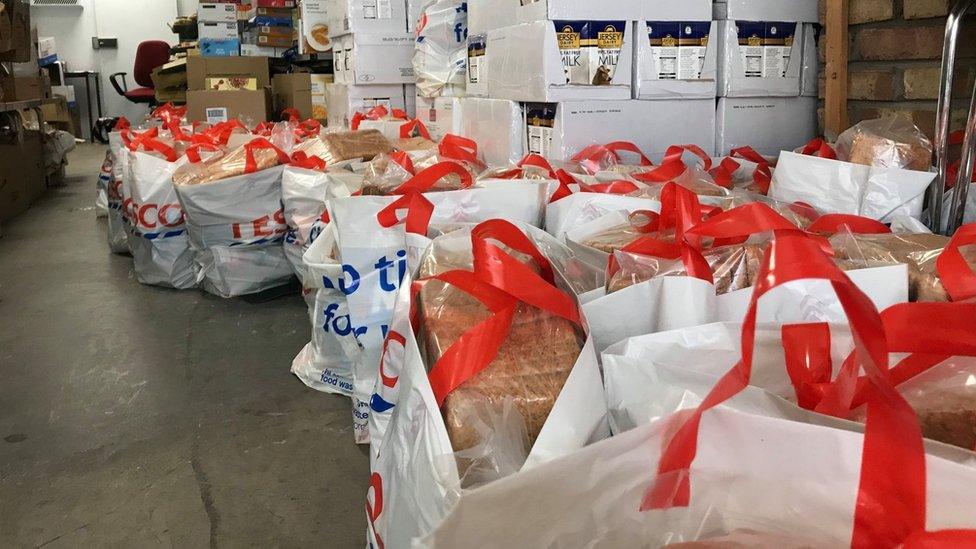
The Grace Trust said islanders had supported them greatly as it gives food to those "who can't cope"
'Beyond our help'
General manager Vinni Jones said: "We have seen a lot of new clients already this year, but it is just once or twice to help them out as a one-off, we are seeing more of that when people can't quite see it through.
"The reasons for people coming here are not within our control, all we ever want to do is help people."
Mr Jones said the charity was giving those in need a bag of food worth up to £25.
In 2021, 40% of those who went to the charity for food supplies were only seen once, with 54% only being seen three times.
The Retail Price Index, which tracks inflation in Jersey, found prices on average rose by 3.8%, with the price of food rising by 1.9% in 2021.
Mr Jones: "For younger families and those that aren't earning enough of course it's going to affect them, the rise in prices and inflation and cost of living going up, and that is something beyond our help.
"The community have been amazing in donating food, everybody is aware that the rise in price is crazy."
Living Wage Jersey campaigns for employers to pay at least £11.27, as opposed to the legal minimum wage of £9.22 per hour, to all employees so "they can live with dignity".
It said the rate recognised the true cost of living in Jersey as 2% more than living in London.
Campaign team leader Jennifer Bridge said: "The campaign is focusing on lifting the wages of the lowest paid in our community, who frequently work long and unsociable hours or take extra jobs just to survive.
"We believe that this living wage needs to be the floor rather than the ceiling for all Jersey employees' salaries."
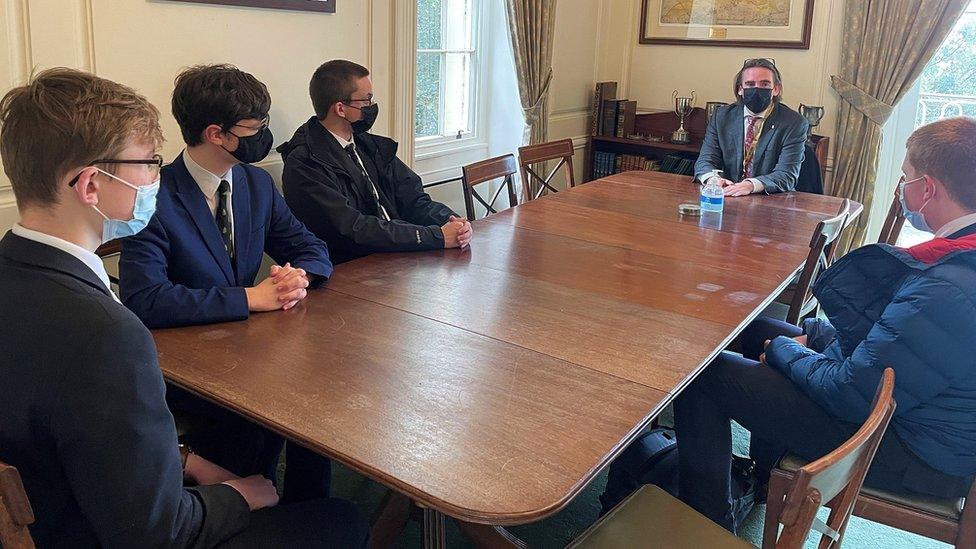
The education minister met with the food poverty advocacy group in February to discuss issues around food poverty
"Big wealth disparity"
A group of students from Victoria College Jersey wrote to the education minister in November to campaign for free school meals for both primary and secondary students whose families struggle financially.
The government currently provides subsidised and free lunches at three schools as part of a pilot scheme alongside the charity Caring Cooks.
Sixth form students Charles, Ralf, Kane and Sam formed the food poverty advocacy group, and said they were inspired by Marcus Rashford and his successful campaigning in the UK.
Their letter, in which they said one in five Jersey households struggled financially and asked Jersey's government to follow in the footsteps of the UK, received more than 500 signatures in support.
They said: "Although Jersey is a very rich island, we felt there was quite a big wealth disparity and we wanted to help by providing free school meals for those who fall under the poverty line.
"We decided to start our own initiative and just felt like we could make a difference in the island, so we held a few meetings to discuss an action plan of what to do moving forward and then we wrote the letter to Deputy Scott Wickenden."
The group said poverty was something they wanted to make sure was not " just brushed under the carpet".
"It is something we want to make sure the limelight is kept on and action is done about it, way too many people are affected by this and it's not something children should have to worry about.
"If they have that stability within the school knowing that they're going to have food then they can concentrate better so that's something that is really important to us."
Education Minister Deputy Scott Wickenden responded last month: "I am unable to commit to your request that all students with parents on income support, regardless of the school they attend, will be provided with free school meals by September this year.
"This is not due to a lack of understanding, lack of funds or lack of political support, it is quite simply a logistical and resourcing issue that cannot be solved within that timescale."
The government confirmed the pilot scheme would end in July, with an official rollout involving six more schools in the scheme from September.
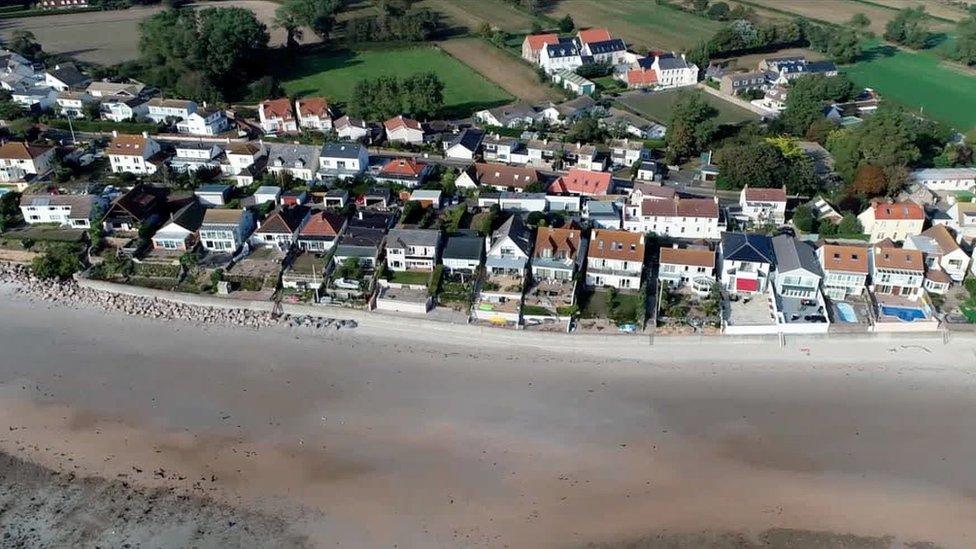
Official statistics show families on the average income of £60,000 can only afford a mortgage on a one-bedroom flat in Jersey
Senator Kristina Moore said the rise of inflation had caused more middle class families to be affected.
She said: "There is clearly an issue here, with some denial that there are people who experience poverty in Jersey and the cost of living and rising costs is an increasing problem and more and more middle class families are being drawn into that because of the high housing costs they are experiencing.
"Families' available money is being reduced month on month as prices rise and, unfortunately, it is inevitable that this is going to get worse, at the moment, rather than better."
In a recent survey conducted by Ms Moore focusing on islanders' quality of life, results showed from the 150 who took part, 60-70% of their incomes were spent on housing costs.
At the end of the survey, some islanders left comments.
One islander said "Jersey government looks after Jersey government, they send out all the right words but do nothing to listen and act on the public's concerns", and another said "I feel trapped in poverty, our wages don't reflect cost of living and housing costs".
Amelia Blackie, money adviser assistant manager at Citizen's Advice Jersey, said the group had received a high number of requests for help from people who were working but struggling financially.
"This year, out of the debt clients we have supported, about 50% have solely been in receipt of benefits, about 30% are employed but also receive a benefit or benefits, and about 20% of them are employed and do not receive a benefit," she said.
Ms Blackie said out of the clients who were employed the key themes were: Debts are credit, outstanding tax bills, Income Support overpayments, rental arrear, outstanding household bills and government co-funding overpayments.
She added the figures did not include inquiries from islanders who had not used its debt management services.
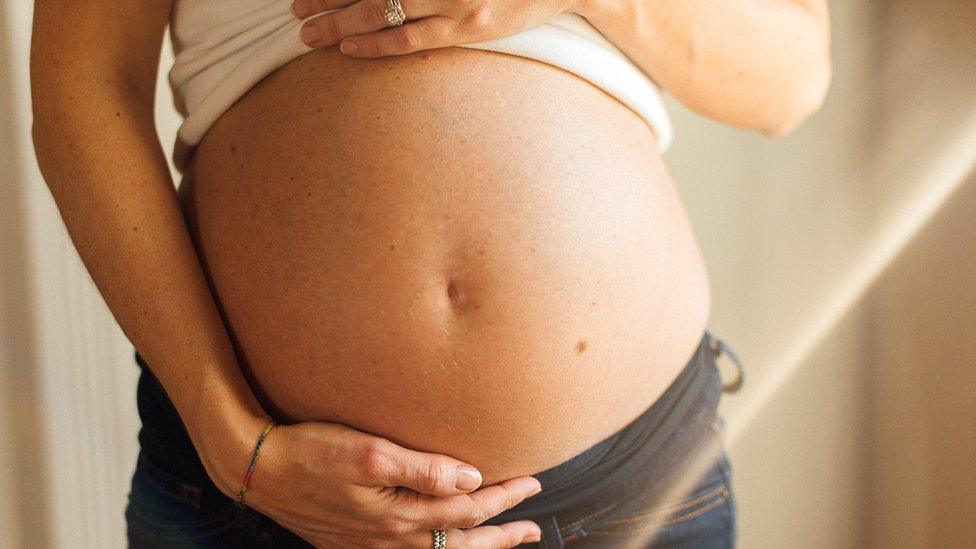
A gynaecologist is worried the high cost of living is causing couples to delay having children
A Jersey doctor said he was worried that couples were delaying starting a family because of the increased cost of living.
According to figures from 2020, 36% of mothers were aged 35 and over compared to 24% in 2001.
Dr Neil MacLachlan said he believed "affordability and employment" were the leading factors for the delays.
He said: "We have to ask ourselves why are women choosing to become mothers at an older age in Jersey?
"The steep cost of living in the island means Jersey has high numbers of households that are reliant on double incomes, childcare costs are high, there is a shortage of affordable accommodation."
Dr MacLachlan said many couples both have to stay in employment to meet the "financial commitment" of starting a family.
"We need to reframe parenthood as a societal concern that workplaces and government have a duty to address," he said.
A government spokesperson said there was "no evidence" to link recent increases in the cost of living to the age of Jersey mothers.
They said: "Statistics show that the average age at which women have their first child in Jersey has stayed about the same over the last seven years, in 2015 it was 30.8 years; in 2021 it was slightly lower at 30.5 years.
"Looking at the age of women in respect of all births, this has increased slightly from 32.0 years in 2015 up to 32.5 years in 2021, this is in line with other jurisdictions."
'Outside Jersey's control'
Deputy Higgins questioned the Minister for Economic Development, Tourism, Sport and Culture Senator Lyndon Farnham on what steps he was taking to "make sure that any price rises in Jersey are genuinely justified by increased costs and that consumers will not be exploited".
Mr Farnham responded stating the factors affecting inflation were "largely outside of Jersey's control", and inflation "may riser further in 2022".
The government released its six actions from its inflation strategy group report:
Consideration will be taken on inflation of any changes to indirect taxes, including the production of an assessment of the impact on inflation of changes to duties
Increases in government charges and fees will aim to average less than 2.5% per year over, for example, a decade
Develop and publish a fees and charges policy to consider overall impact on inflation
Any planned significant new charges will consider the impact on inflation and living costs
Consider the impact on inflation from any price rises over which they have influence or control, mindful that any price increases above 2.5% will put upward pressure on the trend rate of inflation
Support the Jersey competition regulatory authority and will review and assess the competition framework to ensure that it remains fit-for-purpose
A government spokesperson said work on the poverty strategy remained ongoing and that a living costs and household income survey was currently taking place to provide more information on the costs of goods and services.
"The results of this survey will help the Government Plan its policies to support local households, it is important to note that Statistics Jersey started an LCHIS survey in the summer of 2019 with the intention for it to run for a year," they said.
The government said the minimum wage in Jersey had increased by 23% since 2018, and the Government's ambition was "to see further significant increases over the next 2 years".
It added GP fees had been subsidised for "up to 12,000 islanders on income support or pension plus".
"As Jersey recovers from the pandemic, it is experiencing the impact of price rises that is seen globally and at the same time, unemployment levels have dropped to the lowest on record, islanders are reminded that there are financial support services that can be accessed through the government website," it said.
The government said it was committed to becoming a living wage employer across all its sectors.

Analysis by Freddie Miller, Political Reporter, BBC Jersey
It has been described as a 'cost of living emergency' by the chairman of Jersey's Consumer Council.
But it is worth noting that this issue is far from unique to Jersey: concerns over the rising cost of living have been making headlines across the UK.
That said, life in the island was already far from what many would consider cheap.
Goods - most of which need to be imported - already tend to be slightly more expensive here and some islanders feel island life leads to fewer choices when trying to shop around.
In some cases - such as when it comes to who provides your electricity or water - Jersey consumers have effectively no choice whatsoever.
Crucially, wages are not rising as quickly as living costs.
Put it all together, and some will feel this global challenge is magnified here.
And once prices go up, they rarely come down again.

Follow BBC Jersey on Twitter, external and Facebook, external. Send your story ideas to channel.islands@bbc.co.uk
Related topics
- Published20 February 2022
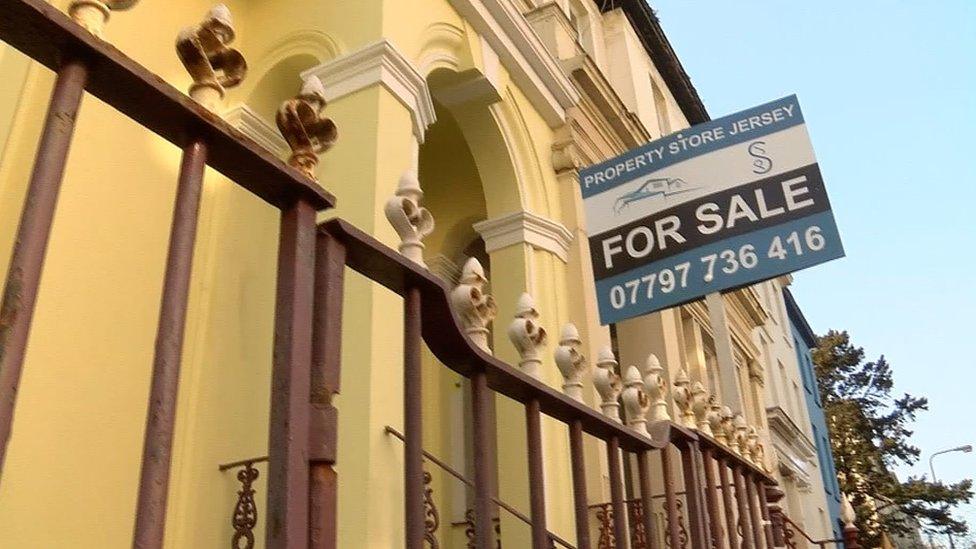
- Published21 January 2022
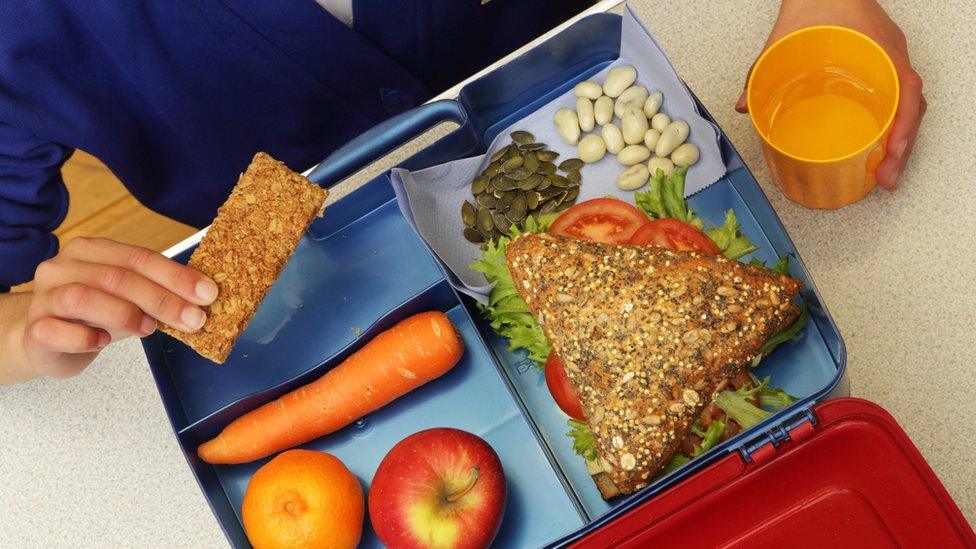
- Published12 January 2022
